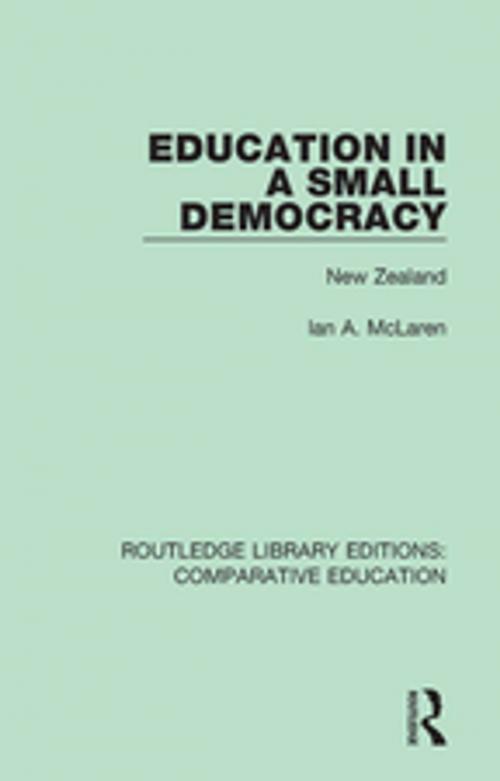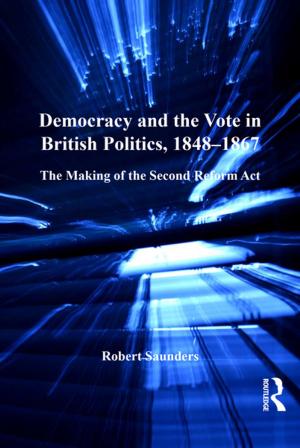| Author: | Ian A. Mclaren | ISBN: | 9781351004725 |
| Publisher: | Taylor and Francis | Publication: | May 8, 2018 |
| Imprint: | Routledge | Language: | English |
| Author: | Ian A. Mclaren |
| ISBN: | 9781351004725 |
| Publisher: | Taylor and Francis |
| Publication: | May 8, 2018 |
| Imprint: | Routledge |
| Language: | English |
Originally published in 1974. Here is a detailed discussion of educational change in New Zealand with implications which should provoke a fresh approach both to the educational tradition in Britain and to the problems of other educational systems which are subject to democratic control. It is primarily concerned with developments in the quarter-century between 1945 and 1970. With frequent reference to events preceding and following this period, the author stresses throughout the professed educational ideal of all post-war New Zealand governments: to provide equality of opportunity in education. He deals with principles of policy and administrative control, including the universities and estimates the influence on official policy of interest groups inside and outside the educational system. He examines social issues which include the extent to which governments have failed to promote equality of opportunity in the schooling of minority groups in the country, and treats, in an historical perspective, the perennial vexed question of state aid to private schools. The concluding chapters describe and analyse the characteristics, difficulties and prospects of primary, secondary and tertiary education.
Originally published in 1974. Here is a detailed discussion of educational change in New Zealand with implications which should provoke a fresh approach both to the educational tradition in Britain and to the problems of other educational systems which are subject to democratic control. It is primarily concerned with developments in the quarter-century between 1945 and 1970. With frequent reference to events preceding and following this period, the author stresses throughout the professed educational ideal of all post-war New Zealand governments: to provide equality of opportunity in education. He deals with principles of policy and administrative control, including the universities and estimates the influence on official policy of interest groups inside and outside the educational system. He examines social issues which include the extent to which governments have failed to promote equality of opportunity in the schooling of minority groups in the country, and treats, in an historical perspective, the perennial vexed question of state aid to private schools. The concluding chapters describe and analyse the characteristics, difficulties and prospects of primary, secondary and tertiary education.















